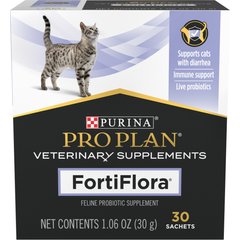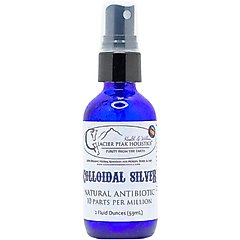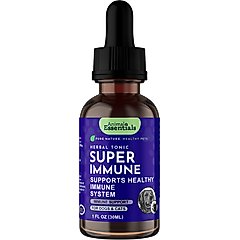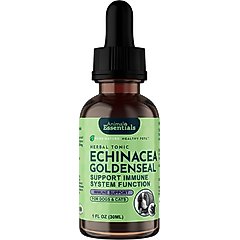What Are Antibiotics for Cats? Does My Cat Need Them?
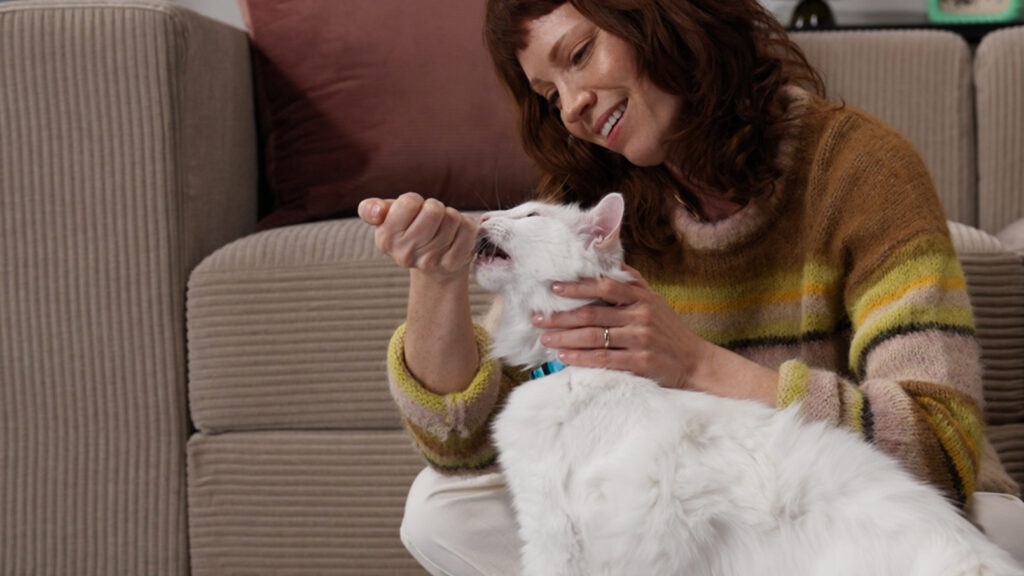
Photo by Chewy
When your kitten or cat develops a bacterial infection, antibiotics can play a vital role in helping them heal. But not every sneeze or scratch requires antibiotics. In fact, using these medications when they’re not needed can do more harm than good.
So, how do you know when antibiotics are necessary for cats? And what should you expect if your cat is prescribed one?
This guide breaks down everything you need to know about antibiotics for cats, including when they’re used, common types, and important safety tips.
Key Takeaways
- Antibiotics for cats treat bacterial infections and are available in oral, topical, and injectable forms, depending on the specific condition and medication.
- An appropriate antibiotic can be used to treat bacterial infection but is generally not effective at treating other types of infection (viral, fungal, etc.).
- Not all illnesses require antibiotics and using them unnecessarily can lead to side effects or the development of antibiotic resistance.
- Always follow your veterinarian’s instructions, complete the entire course, and watch for potential side effects or allergic reactions.
- Natural remedies may support healing in some mild cases, but they should never replace antibiotics without consulting a veterinarian.
What Are Antibiotics for Cats?
The U.S. Food and Drug Administration (FDA) defines antibiotics as medications that fight infections caused by bacteria, by either killing the bacteria or preventing their growth and multiplication. In some cases, antibiotics may also be given preventively, such as before major surgeries to help reduce the risk of infection, says Cliff Redford, DVM, owner of Wellington Veterinary Hospital in Markham, Ontario, Canada.
“Antibiotics work by killing the bacteria outright or by stopping the bacteria from multiplying, thus allowing the cat’s natural immune system to fight the infection,” Dr. Redford explains.
Depending on the type of bacteria, severity of infection, and the location of the infection, your veterinarian might prescribe an oral antibiotic (such as a tablet or liquid), a topical antibiotic (like a cream or ointment), or an injectable form. In some cases, a combination of antibiotics will be prescribed by a veterinarian to treat certain types of bacterial infection.
Veterinarians commonly prescribe antibiotics to treat conditions such as:
- Skin infections (pyoderma)
- Abscesses, hot spots, and wounds
- Urinary tract infections
- Respiratory infections
- Dental or gum disease
- Gastrointestinal infections
Common Types of Antibiotics for Cats
Several types of antibiotics are commonly prescribed for cats, depending on the type, severity, and location of the infection.
Here’s a look at some of the most frequently used options and their typical uses.
| Antibiotic Name | Common Forms | What It Treats |
|---|---|---|
| Amoxicillin | Oral tablets or liquid | Skin, respiratory, urinary tract, reproductive, and gastrointestinal infections |
| Cephalexin | Oral tablets or liquid | Off-label for skin, soft tissue, urinary tract, and periodontal infections |
| Clindamycin | Oral tablets or liquid | Wounds, abscesses, dental infection, and bone infection (osteomyelitis) |
| Doxycycline | Oral tablets or liquid | Off-label for bacterial upper and lower respiratory infections, periodontal infections, and tick-borne illnesses (e.g., Lyme disease, Rocky Mountain Spotted Fever, etc.) |
| Enrofloxacin | Oral tablets | Respiratory, urinary tract, skin, and other bacterial infections susceptible to this medication, especially severe cases |
| Gentamicin | Eye drops or an injection administered by a veterinarian | Eye infections; off-label for some serious systemic infections |
| Metronidazole | Oral tablets, liquid, or an injection administered by a veterinarian | Off-label for gastrointestinal infections, protozoal parasites (e.g., Giardia), and inflammation |
| Orbifloxacin | Oral liquid | Wounds, abscesses, and other skin infections; off-label for kidney, bladder, and respiratory infections |
Side Effects of Antibiotics in Cats
Dr. Redford says cats generally tolerate antibiotics well if they’re given at the correct dose.
He says the most common side effect of antibiotics in cats (though still relatively rare) is diarrhea, which may occur due to disrupting the balance of healthy gut bacteria.
“This side effect can usually be corrected with probiotics or adding gut-healthy fiber [like Fera Pets Pumpkin Plus] to a cat’s diet temporarily,” he adds.
Recommended Product
High-quality probiotics, like Purina Pro Plan Veterinary Supplements FortiFlora, can help to restore a normal balance of bacteria in the GI tract, often helping to address diarrhea.
Recommended Product
A couple of other highly rated cat probiotics include Nutramax Proviable Digestive Health Supplement and Fera Pets Probiotics + Prebiotics. But always check with your vet before giving your cat supplements.
Recommended Products
Other side effects of antibiotics in cats might include:
- Decreased appetite
- Vomiting
- Lethargy (low energy)
- Drooling (especially with bitter-tasting medications)
Always complete the full course of antibiotics when your kitty has been prescribed one of these medications, unless your veterinarian instructs you otherwise. Even if your cat appears to be better, stopping treatment early can allow the infection to return or contribute to antibiotic resistance.
Signs of an Allergic Reaction to Antibiotics in Cats
“Allergic reactions to antibiotics in cats are generally considered rare, but they can occur,” says Veronica Villanueva, DVM, medical director of VEG ER for Pets’ Anaheim Hills, California location.
“The variety of antibiotics available means that reactions can vary widely depending on the specific medication and the individual cat’s sensitivity,” she adds.
Dr. Villanueva says signs of an allergic reaction in cats may include:
- Skin reactions: Hives, redness, swelling, or itching of the skin
- Gastrointestinal issues: Vomiting and/or diarrhea
- Respiratory distress: Difficulty breathing, coughing, or wheezing (these require immediate emergency attention)
- Swelling: Particularly of the face, lips, or tongue, which can indicate a more severe reaction
- Lethargy: Unusual tiredness or weakness
- Seizures or tremors: Neurological symptoms that can indicate a serious allergic reaction
If you notice any of these signs (or any other unusual symptoms), stop the medication and contact your veterinarian or a pet emergency clinic immediately. Severe allergic reactions can be life-threatening and may require emergency treatment.
Over-the-Counter Antibiotics for Cats
In most cases, antibiotics for cats are not available over the counter—they require a prescription from a veterinarian.
If you think your cat has an infection, schedule a veterinary visit. Your veterinarian can determine if an antibiotic will be helpful and can prescribe the best antibiotic for your cat’s specific situation.
Natural Antibiotics for Cats
While antibiotics require a prescription from your vet, there are over-the-counter supportive care products that can help to expedite a cat’s recovery from bacterial infections. Dr. Redford says veterinarians sometimes recommend these options, but typically only for mild infections or as a complement to antibiotic treatment.
Some popular natural remedies (often referred to as “natural antibiotics”) include:
- Manuka honey: Has antibacterial properties and is commonly used topically on minor wounds to promote healing and reduce infection risk; found in HoneyCure Natural Veterinary Wound Care Ointment
Recommended Product
- Colloidal silver: Provides antibacterial, antifungal, and antiviral effects; used to manage mild skin infections, hot spots, and oral health; featured in Glacier Peak Holistics Colloidal Silver Spray
Recommended Product
- Olive leaf extract: Offers antibacterial and antifungal properties; used to support immune health and help manage skin or respiratory infections; included in Animal Essentials Super Immune Support
Recommended Product
- Echinacea: Supports immune function and is used to help the body fight respiratory infections and aid overall recovery; featured in Animal Essentials Echinacea/Goldenseal Immune Support
Recommended Product
- Goldenseal: Has natural antibiotic and anti-inflammatory properties; used for digestive issues, skin infections, and wound care
Note: These natural remedies have limited research in cats and may pose risks if used improperly. Always consult your vet before giving your cat any new supplement or treatment.
FAQs About Antibiotics for Cats
What is the best antibiotic for treating cat bites?
When a cat bites another cat, the puncture wounds can easily lead to deep tissue infections and abscesses.
For cat bite wounds, veterinarians typically prescribe amoxicillin, amoxicillin/clavulanic acid, or clindamycin. These antibiotics are usually effective against the types of bacteria commonly found in bite wounds.
Can cats take human antibiotics safely?
While certain antibiotics may be used to treat bacterial infections in both humans and cats, the dosages are very different.
If your cat is sick, always consult your veterinarian before starting any treatment. Your vet will determine the most appropriate medication and dosage, tailored to your cat’s specific needs. Never attempt to diagnose your cat or treat them with leftover medications (for animals or for people), as this can be hazardous.
What antibiotic is used for UTIs in cats?
Common antibiotics used for feline urinary tract infections include amoxicillin, amoxicillin/clavulanic acid, and enrofloxacin. The best choice depends on the type of bacteria and your cat’s health history. The type of bacteria is usually determined by urine culture and sensitivity testing done by your veterinarian.
Is triple antibiotic ointment safe to use on cats?
Triple antibiotic ointments, such as Neosporin, are not recommended for cats. Some ingredients can be toxic when ingested, which can happen when a cat grooms. Instead, use a vet-prescribed antibiotic ointment for cats.
How long does my cat need to take antibiotics?
It depends on the infection. Most antibiotic courses last from five to 14 days, but some conditions may require a shorter or longer course of treatment. Always complete the full course of antibiotics, unless your vet advises otherwise, even if your cat appears to be better before the medication course is finished.


